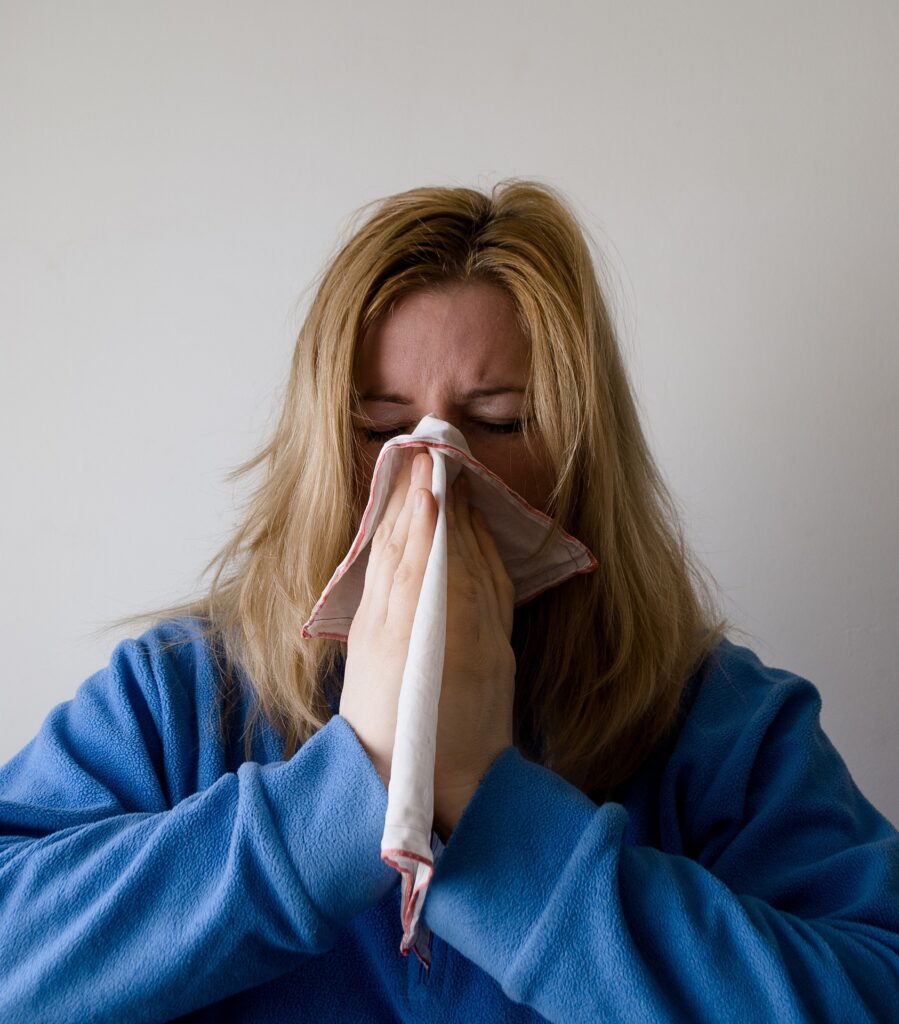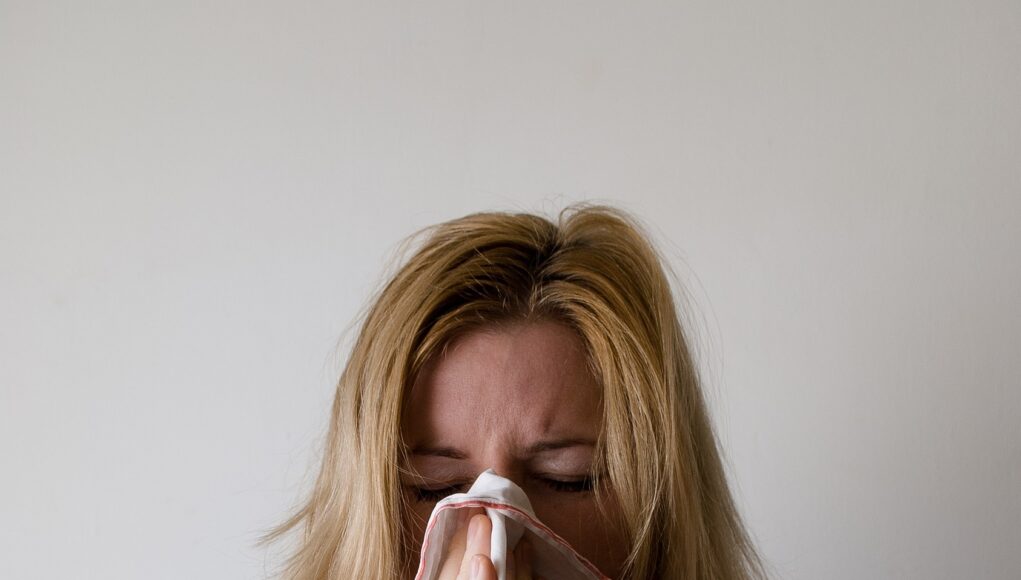Seasonal allergies affect over 50 million people in the United States each year. As the seasons change and plants start blooming, allergens like pollen are released into the air. For those with sensitivities, this can cause miserable allergy symptoms like sneezing, itchy eyes, sinus congestion, and more.

While over-the-counter and prescription medications can be effective, many people prefer using natural remedies to get relief from seasonal allergy discomfort. Natural remedies come with little to no side effects and can be used safely in conjunction with other treatments.
This article reviews 19 science-backed natural seasonal allergy remedies and compares their effectiveness based on available research:
Effectiveness Comparison of Natural Allergy Remedies
| Remedy | Effectiveness Rating | Level of Research |
| Quercetin | ??? | High |
| Butterbur | ??? | Moderate |
| Stinging Nettle | ??? | Moderate |
| Vitamin C | ??? | Moderate |
| Bromelain | ??? | Moderate |
| Spirulina | ??? | Low |
| Apple Cider Vinegar | ??? | Low |
| Honey | ??? | Low |
| Probiotics | ??? | Very Limited |
| Saltwater Rinse | Not Effective | Moderate |
| Peppermint Oil | ??? | Low |
| Licorice Root | ??? | Low |
| Gingko Biloba | ??? | Low |
| Green Tea | ??? | Low |
| Hot Sauce | ??? | Anecdotal |
| Local Raw Honey | ??? | Anecdotal |
| Acupuncture | ??? | Limited |
| Butterbur | ??? | Moderate |
| Stinging Nettle | ??? | Moderate |
| Vitamin C | ??? | Moderate |
1. Quercetin
Quercetin is a natural plant flavonol found in many fruits, vegetables, and grains. It has strong anti-inflammatory and antihistamine properties.
Multiple studies show quercetin can help relieve allergy symptoms like sneezing, itching, runny nose, and swelling when taken as a supplement ([1][2]).
A large review found that participants saw a significant reduction in symptoms and improved quality of life after taking quercetin. Doses ranged from 100-1000 mg daily ([3]).
Quercetin has an excellent safety profile but can interact with some medications, so check with your doctor before trying it.
2. Butterbur
Butterbur is an herb that has traditionally been used to treat headaches, pain, and asthma. Today, butterbur is commonly used as a natural antihistamine for treating hay fever and allergic rhinitis.
A 2013 review found that butterbur extract reduces nasal symptoms associated with seasonal allergies. It was most effective at reducing sneezing and nasal congestion ([4]).
Another study gave participants either butterbur extract or antihistamine (fexofenadine) for 2 weeks. Both treatments significantly improved allergy symptoms without any notable side effects ([5]).
Typical dosages range from 50-100 mg up to 3 times daily. Note that unprocessed butterbur contains toxins, so only use supplements that have purified extracted butterbur.
3. Stinging Nettle
Stinging nettle is a plant that has been used medicinally for ages to treat a variety of conditions from arthritis to seasonal allergies.
A recent study found that participants saw a significant reduction in allergy symptoms after 12 weeks of stinging nettle supplementation ([6]). Other research shows stinging nettle can reduce inflammation caused by seasonal allergies ([7]).
Most studies use around 600 mg of stinging nettle leaf extract daily. Side effects are rare but may include upset stomach, sweating, hives, and rash ([8]).
4. Vitamin C
Vitamin C is a powerful antioxidant that can support immune health and reduce inflammation associated with seasonal allergies ([9]). Studies show vitamin C supplements can reduce the duration and severity of symptoms like sneezing, runny nose, and stuffy nose ([10]).
1-2 grams of vitamin C per day has been found to provide allergy relief without significant side effects. Use caution at higher doses, which can cause kidney stones or diarrhea ([11]).
5. Bromelain
Bromelain is an enzyme naturally found in pineapples that has many therapeutic benefits. Research indicates that bromelain may reduce inflammation involved in allergies and boost immune health ([12][13]).
In one study, bromelain helped reduce inflammation of nasal passages. This resulted in reduced congestion and improved breathing ([14]). Typical doses range from 200-500 mg up to 3 times daily ([15]).
Bromelain may interact with some medications like antibiotics and blood thinners. Some people also experience side effects like diarrhea, nausea, and stomach pain ([16]).

6. Spirulina
Spirulina is a type of blue-green algae that is rich in various nutrients and antioxidants. Early research in animals and humans suggests spirulina can reduce inflammation and histamine levels, making it potentially useful for alleviating allergies ([17][18]).
However, there is currently limited quality research on spirulina’s effectiveness for seasonal allergy relief in humans. Studies have used 1-2 grams daily without any serious side effects ([19]).
7. Apple Cider Vinegar
Apple cider vinegar (ACV) has many proposed health benefits due to its antioxidant and antimicrobial effects. Anecdotal evidence suggests that diluting ACV with water and gargling with it can relieve a sore throat and reduce mucus associated with seasonal allergies.
However, there are currently no quality human studies demonstrating ACV’s usefulness against seasonal allergy symptoms specifically. ACV may cause side effects like digestion issues, throat irritation, and tooth enamel erosion when used long-term ([20]).
8. Honey
Honey has anti-inflammatory, antioxidant, and antibacterial properties. There is some evidence that raw, unprocessed honey may provide modest relief for seasonal allergy symptoms.
A small study found that participants reported significantly better control of allergy symptoms while consuming birch pollen honey ([21]). Another study discovered a special honey made from bees pollinating rhododendron may help reduce symptoms ([22]).
However, more research is needed to determine optimal dosing. Safety wise, adults and children over 1 year can consume 1-2 tablespoons of pasteurized honey per day as part of a balanced diet ([23]).
9. Probiotics
Probiotics are beneficial bacteria and yeasts that promote digestive health. Although research is limited, some studies suggest probiotic supplements can reduce inflammation and nasal congestion ([24][25]).
More research is underway to determine if probiotics can influence immune responses involved with seasonal allergies ([26]). In general, probiotics are considered safe with very few side effects in most people.
10. Saltwater Rinse
Nasal irrigation with a saltwater solution is often recommended as an additive treatment to help remove mucus and allergens from nasal passages.
However, multiple reviews of the research have found saline nasal rinses do not significantly improve allergy symptoms nor reduce medication use in adults or children ([27][28]).
More research is needed, but saltwater rinses are safe for most people when prepared and used properly according to directions ([29]). Potential side effects include nasal irritation and stinging.
11. Peppermint Oil
Peppermint oil has anti-inflammatory, antihistamine and decongestant properties, which may help relieve allergy symptoms like stuffy nose and cough ([30]).
Some small studies in humans show benefits. A study found peppermint oil improved bronchial asthma, which has similar mechanisms to allergies ([31]). Another study discovered it relieved upper respiratory symptoms like cough and congestion ([32]).
Peppermint oil is likely safe when diluted and applied to the skin. Ingestion can cause heartburn and headaches in some people ([33]). The oil can also be inhaled or used intranasally but more research is needed around safety and dosing for this purpose.
12. Licorice Root
Licorice root comes from the Glycyrrhiza glabra plant and contains anti-inflammatory compounds like glycyrrhizin ([34]). Lab and animal studies indicate licorice root may help treat allergic inflammation ([35]).
However, human studies are lacking. Some support comes from a study showing licorice nasal spray could suppress histamine release ([36]). Typical doses for supplementation are around 380-800 mg daily ([37]).
Long-term licorice intake is not recommended as it can cause fluid retention, potassium depletion, high blood pressure, and other side effects in some people ([38]).

13. Gingko Biloba
Extracts from the Gingko biloba tree may have antihistamine effects based on animal studies ([39]). Some small human studies show promise.
One trial found gingko modestly reduced nasal inflammation within 6 days in people with seasonal allergies ([40]). Another study saw improved quality of life after 4 weeks in participants taking gingko versus placebo ([41]).
Standardized extract of 120-240 mg divided into 2-3 doses has been used safely in studies. Potential side effects include dizziness, constipation, and headaches ([42]).
14. Green Tea
Green tea contains antioxidants like epigallocatechin gallate (EGCG) that may reduce inflammation and histamine responses related to seasonal allergies ([43]).
Animal studies show wheezing, sneezing, and inflammation can be suppressed by green tea compounds ([44]). Human research is limited. One small study found that drinking green tea decreased symptoms and antihistamine use ([45]).
Up to 10 cups of green tea per day seems safe for most adults. Side effects may include headaches, diarrhea, and insomnia in sensitive people ([46]).
15. Hot Sauce
Hot sauce contains capsaicin, which can help break up mucus and clear sinuses. Anecdotal reports indicate that hot sauce may relieve congestion associated with seasonal allergies.
However, human studies evaluating this are lacking. Potential side effects of regularly eating hot sauce include upset stomach and irritation of the esophagus and throat ([47]).
16. Local Raw Honey
There is some anecdotal evidence that consuming locally-sourced raw honey can help people better tolerate local pollen allergies. This concept is known as “oral immunotherapy”.
However, there are few reliable studies demonstrating clear benefits or an ideal dosing regimen ([48]). Safety wise, consuming 1-2 tablespoons per day is typically not a concern outside of infancy.
17. Acupuncture
Acupuncture is an ancient therapy that involves placing tiny needles into strategic points on the skin to stimulate nerve pathways and relieve various conditions.
Limited evidence from some studies suggests acupuncture can reduce symptoms and antihistamine use in people with seasonal allergies ([49]). Exact methods and durations differ across studies.
When performed by trained professionals, acupuncture is widely considered safe with few side effects ([50]). Common complaints include soreness, minor bleeding, and bruising where needles are inserted.
Natural Antihistamines Ranked By Effectiveness
To sum up the available research:
- Quercetin seems to be the most effective natural antihistamine supplement for seasonal allergy relief.
- Butterbur and stinging nettle also perform well in studies for controlling symptoms like stuffy nose.
- Vitamin C and bromelain have moderate data supporting their anti-inflammatory effects.
- Other natural remedies like spirulina, apple cider vinegar, and green tea have less evidence right now but are still worth consideration.
- Approaches like hot sauce and acupuncture require more reliable human research.
- Saltwater nasal rinses are not proven to reduce allergy medication use or symptoms significantly.
The majority of natural options in the list seem relatively safe for short-term use according to most studies. However, consult your doctor before trying new dietary supplements, especially if you take any medications or have underlying health conditions.
Continuing research will help clarify what remedies work best. Natural approaches will likely become increasingly popular options for minimizing seasonal allergy symptoms.
Frequently Asked Questions About Natural Allergy Relief
1. What are the most common seasonal allergy symptoms?
The most common allergy symptoms caused by airborne irritants like pollen include:
- Runny, stuffy nose
- Sinus congestion
- Sneezing/coughing
- Itchy nose, throat, eyes
- Watery eyes
- Postnasal drip
- Dark circles under eyes
- Recurring earaches and headaches
If these symptoms only happen during certain seasons and improve when you stay indoors, seasonal allergies may be to blame. Trees, grass, weeds, and outdoor mold all can trigger reactions.
2. When do seasonal allergies occur each year?
In northern climates, tree pollen is often the main culprit in spring starting as early as February and lasting through May. Grass pollen then takes over from late spring around May through July. Ragweed pollen can plague people from August until the first frost.
In warmer southern climates, the grass and ragweed allergy seasons can start earlier and last longer. Mold spores tend to peak in wet weather – spring and fall in many regions. Paying attention to local pollen counts can help you anticipate bad days.
3. Can natural antihistamines replace allergy medications?
For those with milder seasonal allergy symptoms, natural options may provide enough relief on their own. However, those with moderate to severe symptoms likely still need allergy medications like antihistamines, nasal sprays, and allergy shots prescribed by their doctor.
In many cases, natural remedies can complement these medications and allow people to reduce their dosage and frequency. Talk to your allergist before making any medication adjustments.
4. Are natural antihistamines safe for pregnant or breastfeeding women?
Certain natural remedies may be safe in small doses but more research is needed. Quercetin, vitamin C, honey, and probiotics don’t raise particular concerns. Stinging nettle and butterbur may be fine but discuss use and dosage with your OB-GYN.
Avoid peppermint oil, licorice root, and higher doses of garlic, onions, horseradish, turmeric, and cayenne pepper which could stimulate the uterus. Whether antihistamine herbs pass into breastmilk varies per product, so exercise caution.
5. How can you avoid seasonal allergy triggers?
Here are some evidence-based methods to reduce your exposure to pollen and other air particles that provoke allergy symptoms when counts are high:
- Check daily pollen counts and stay inside as much as possible on high days
- Keep windows closed, use A/C if possible during peak seasons
- Change clothes after going outside to prevent bringing allergens indoors
- Shower at night before bed to wash pollen off skin and hair
- Consider wearing an N95 face mask outdoors
- Avoid drying clothes outside which collect pollen
- Use HEPA air purifier filters indoors
Reducing exposure to allergens alongside natural allergy remedies can provide the best relief.
6. When should someone see a doctor for seasonal allergies?
Consult an allergist or immunologist if:
- Over-the-counter medications and natural remedies don???t relieve symptoms
- Symptoms significantly interfere with work performance, sleep, or quality of life
- Symptoms get progressively worse each year
- Symptoms last almost year-round
- You experience shortness of breath, recurrent sinus infections, or asthma flares during allergy season
Finding the root allergic triggers through testing will allow long-term treatment plans to be created. Doctors can also prescribe stronger allergy and asthma drugs as needed to manage more troublesome symptoms.

The Bottom Line
Seasonal allergies affect over 1 in 6 Americans. Thankfully, research shows many natural remedies can safely reduce uncomfortable symptoms for allergy sufferers.
Options like quercetin, stinging nettle, butterbur, and vitamin C seem among the most effective based on studies. Even everyday foods like honey, fruits, and veggies contain anti-inflammatory compounds that may tame allergies.
Herbal supplements should be purchased from reputable sources and the correct dosages used. Pair natural antihistamines with other healthy daily habits like sleep, stress management, nutrition, and exercise for optimal results.
While more research is underway, nature provides us with tools to help prevent allergies from ruining our favorite seasons year after year.









